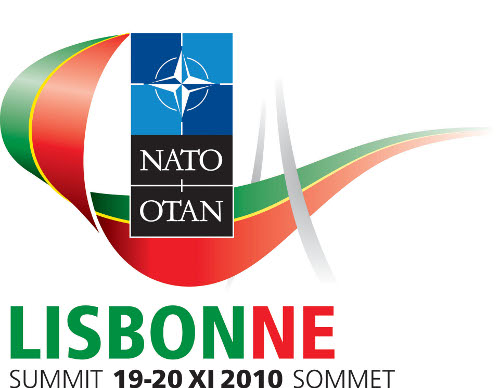
Since 1999, 12 nations from the Baltics to the Balkans graduated from partnership with NATO to membership. Hence, it’s a safe bet that NATO’s new Strategic Concept, when unveiled at the Lisbon Summit on Nov. 19-20, will reaffirm the "open door" policy that "no European democratic country whose admission would fulfill the (Washington) Treaty’s objectives will be excluded from consideration."
However, further enlargement toward problematic eastern aspirants – Georgia, Macedonia and Montenegro – has stalled, and Ukraine President Viktor Yanukovych has shelved his country’s application. Hence, NATO’s next enlargement might go in a different direction: north.
Since joining the Partnership for Peace in 1994, Finland and Sweden have developed close ties with NATO, where many regard them as virtual allies. Both were early force providers to NATO operations in Bosnia-Herzegovina and Kosovo and, more recently, in Afghanistan.
They participate in multiple NATO programs that have helped to transform their militaries from outdated, unsustainable Cold War structures into smaller, more capable and deployable forces.
The new Strategic Concept almost certainly will advocate expanding NATO’s dialogue and pragmatic cooperation with Russia, intensifying its civil-military approach to crisis response, building much closer relations with the EU and other key international actors, and enhancing allied cooperation in the "global commons," including the protection of cyberspace and maritime security in the Baltic and Arctic regions.
In these and other areas, Finland and Sweden share many common approaches with the allies. But as partners, their ability to inform, shape and implement NATO policies is constrained.
Finnish and Swedish officials now acknowledge publicly what most had long understood: Neither country can pursue a "go-it-alone" security strategy. They are also beginning to ask the right questions:
n Since NATO will profoundly affect their security environment for the indefinite future, are they better served by having a seat at the table where NATO policies are formulated?
n Given the trend of greater cooperation between the EU and NATO, are they at a disadvantage in shaping that cooperation compared with the 21 EU members that also are in NATO?
French leaders asked similar questions before deciding, in 2009, to return to full participation in NATO’s military structures after a 43-year absence. Their answer: A "one-foot-in, one-foot-out" approach doesn’t work in NATO.
But the common assumption that Helsinki and Stockholm will eventually seek membership in tandem underestimates differences in their strategic cultures.
Despite nuanced declarations – in April, Finland’s defense minister, Jyri Hakamies dismissed "any actual military threat against Finland" – many Finnish strategists worry about Russia. This is understandable, given Finland’s bloody wars with the Soviet Union from 1939 to 1944 and resentments over Moscow’s heavy-handed pressures over the next 45 years.
Yet while keeping a watchful eye on Russian military and political developments, Finland pursues a positive agenda on trade, energy, environmental and other cooperation with its eastern neighbor.
Moscow detests NATO enlargement, and Finns uncertainty over how this would play out is one explanation for a 2009 poll that showed 28 percent in favor versus 62 percent opposed to NATO membership.
Still, since 2004, published reports by government ministries, parliamentary commissions and respected think tanks have methodically weighed membership’s potential costs and benefits. making it hard for NATO skeptics to argue their case based on myths.
Experienced Finnish observers believe that if their political leaders were to reach a consensus to join NATO – and this would depend on parliamentary elections next April and the January 2012 presidential contest – public opinion would rally behind them.
Sweden has been at peace for nearly 200 years, although Russian intervention in Georgia alarmed Stockholm. And while Swedes’ views of U.S. policies have improved since 2008, their Cold War legacy of moralistic neutralism and anti-nuclear fervor occasionally resurfaces.
Swedish views are evolving. Since 2007, the governing alliance coalition has broken from the traditional view of military non-alignment and formally adopted, with bipartisan parliamentary backing, a "solidarity declaration" stating: "Sweden will not remain passive if a disaster or attack would strike another EU member state or Nordic country. … [Accordingly], Sweden will have the ability both to receive and provide military support."
A Swedish survey found that support for NATO membership "as soon as possible" or "eventually" jumped from 17 percent in 2005 to 35 percent in 2009.
Nevertheless, Swedish politicians are less prepared than their Finnish counterparts to tackle the NATO membership question. The alliance coalition, which formed a minority government following the Sept. 19 elections, is divided on the issue and cannot agree to conduct an objective study. The impasse could last several years.
What should NATO do? Simply put, be patient. Enlargement should not be an end in itself. If the alliance gets its Strategic Concept right, reforms its military and civilian structures and demonstrates solidarity in the face of 21st-century threats, it will remain the beacon of Euro-Atlantic security that has attracted Finland and Sweden ever closer to its ranks.
If they opt to remain partners, NATO must make clear that their contributions are valued. And if one or both seek membership, their citizens must accept their responsibilities toward the alliance that will be better prepared, in return, to protect them.
Leo Michel is a Distinguished Research Fellow at the Institute for National Strategic Studies at National Defense University. This article first appeared in Defense News.
This article is part of a New Atlanticist discussion – The 2010 Lisbon Summit: A New Atlanticist Forum – on the Summit’s expectations, areas of focus, and potential outcomes.
Image: Lisbon%20Logo%20500_0.jpg
